The Great Lakes Center for the Study of the United States at Makerere University has welcomed Professor Judithanne Scourfield McLauchlan from the University of South Florida , St. Petersburg Campus (USF), for a month-long academic engagement aimed at strengthening the Center’s research on U.S.–Uganda relations.
Professor McLauchlan, an Associate Professor of Political Science and Director of the Center for Civic Engagement at USF, will provide mentorship and collaboration on the Center’s flagship “Relationality Studies” project—an interdisciplinary effort examining the historical, political, and cultural dimensions of the U.S.–Uganda relationship. She will also hold consultations with researchers at the Center’s office located in the School of Social Sciences throughout October 2025.
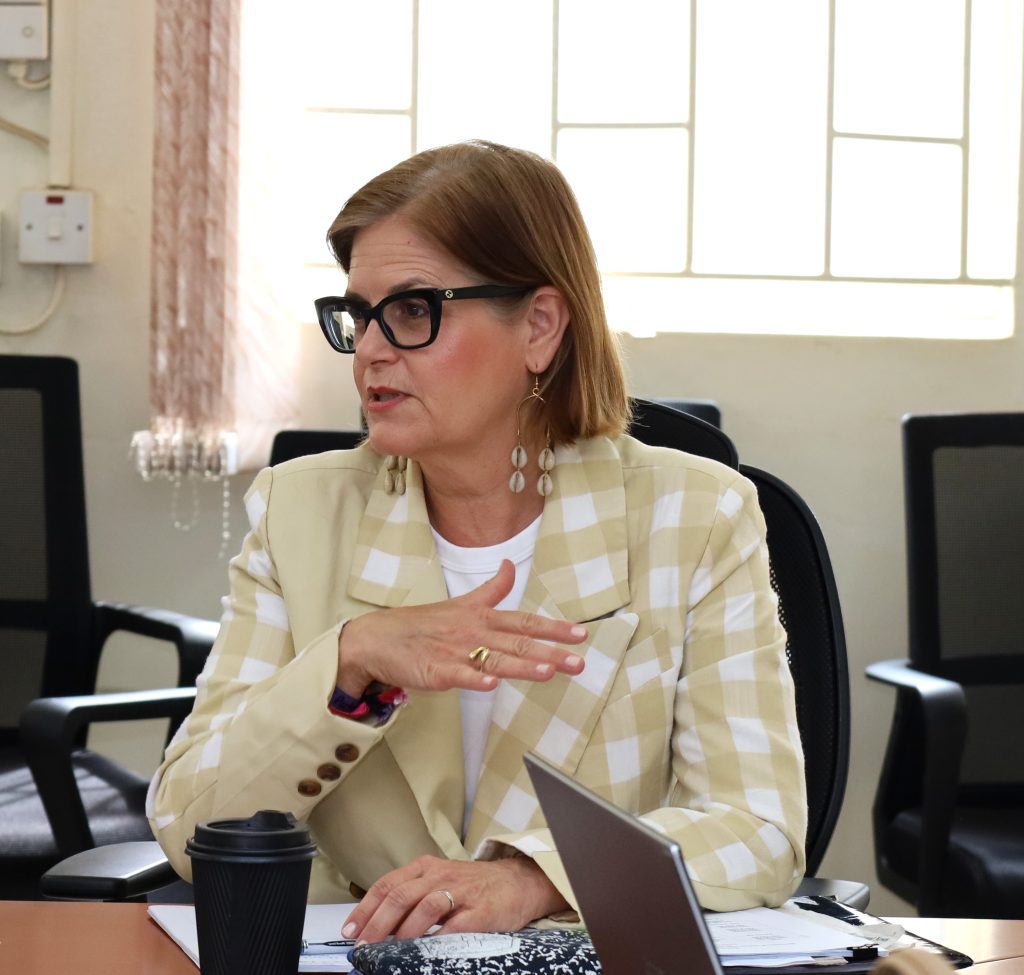
On October 8, 2025, the Center hosted a seminar to brief Professor McLauchlan on the progress of ongoing research and to discuss avenues for expanding the Center’s research partnerships, publications, and international collaborations.
Building Bridges for Research Collaboration
Dr. Sylvester Kaweesi, the Principal Investigator of the Great Lakes Center, said the workshop aimed to introduce Professor McLauchlan to the research direction of the Center and explore areas where her expertise could advance the ongoing studies.
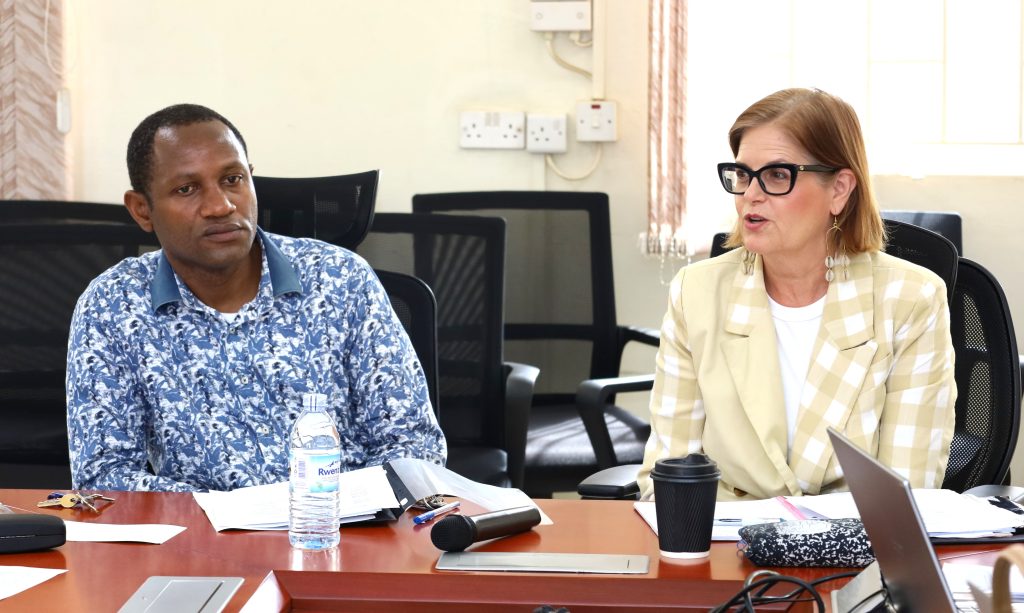
“The purpose of this workshop was to bring Judithanne on board regarding the research agenda of the Center and to identify areas where her intervention can help expand our scope,” Dr. Kaweesi explained. “She’s here to connect us to universities in the United States and to help build firm collaborations for joint research grants, staff and student exchanges.”
He noted that the researchers were midway through their data collection and had begun drafting chapters for a forthcoming book on relationality, expected to be published by August 2026. “We expect draft chapters by mid-October, and Judithanne will help review them and link our researchers with American scholars working on related topics,” he added.
A Promising and Engaging Research Agenda
Reacting to the presentations, Professor McLauchlan expressed enthusiasm about the depth and variety of work being conducted under the Center’s Relationality Studies initiative.
“I’m delighted to be at Makerere University’s Great Lakes Center for the Study of the United States. The research agenda is both engaging and promising,” she said. “The breadth of topics—from countering violent extremism and constitutionalism to programs like the Peace Corps and Fulbright—shows the richness of U.S.–Uganda relations. I look forward to working closely with these scholars and seeing their work published.”
She commended the researchers for their impressive progress in a short time and reaffirmed her commitment to strengthening academic cooperation throughout her stay.
Dr. Charlotte Mafumbo: Examining Counter-Terrorism Cooperation
Researcher Dr. Charlotte Mafumbo presented findings on counter-terrorism cooperation between Uganda and the United States, exploring both hard and soft power approaches to fighting extremism.
Her study traces the evolution of this partnership from the 1990s through the global “War on Terror” after 9/11, to contemporary initiatives emphasizing community engagement.
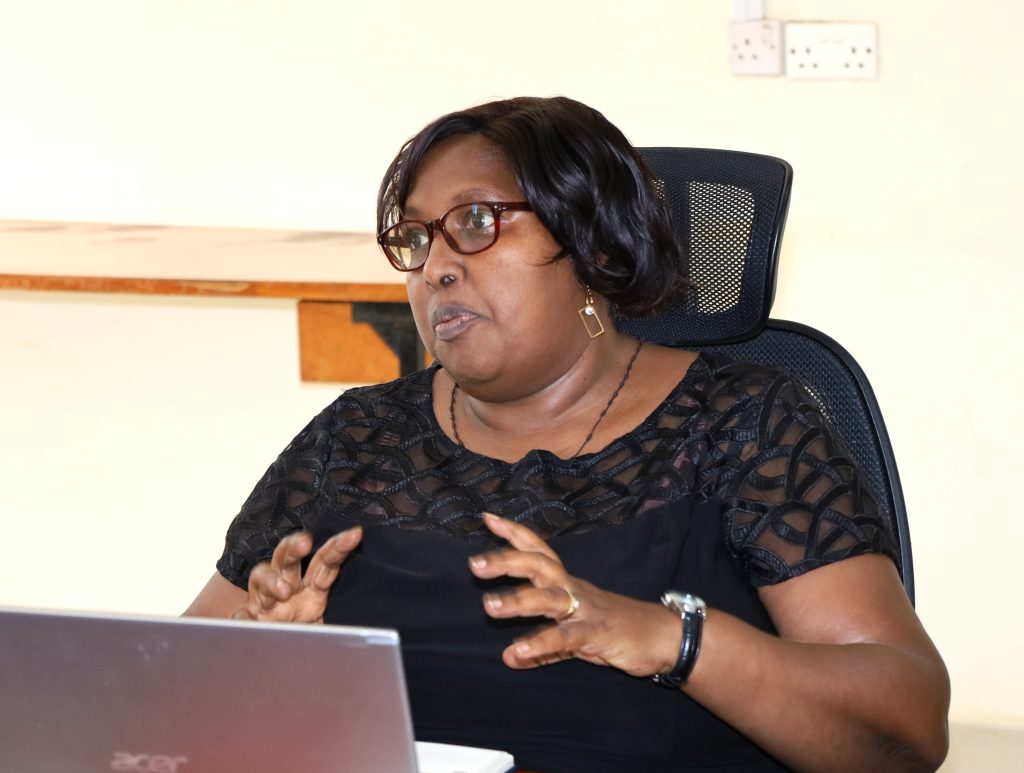
“Beyond military cooperation, we are now examining the soft power approaches that emphasize education, youth skilling, interfaith dialogue, and cultural exchanges,” Dr. Mafumbo said. “These programs—supported by U.S. institutions—help deter radicalization through community-led interventions, critical thinking curricula in Madrasas, and civic education.”
She highlighted U.S.-funded grassroots programs in regions like Kasese and Busoga, which use dialogue and youth empowerment to counter extremist narratives. “Such initiatives address the root causes of radicalization—poverty, unemployment, and misinformation—by giving youth the tools to build meaningful lives,” she concluded.
Dr. Benard Luwerekera: Tracing the Peace Corps’ Legacy in Uganda
Dr. Benard Luwerekera shared his ongoing study on the Peace Corps’ role in fostering people-to-people diplomacy and cultural exchange between Uganda and the United States.
“The Peace Corps represents one of the most enduring examples of America’s soft power—building relationships through friendship and service,” he said. “Volunteers have worked in education, health, agriculture, and community development, even in hard-to-reach areas during fragile political times.”
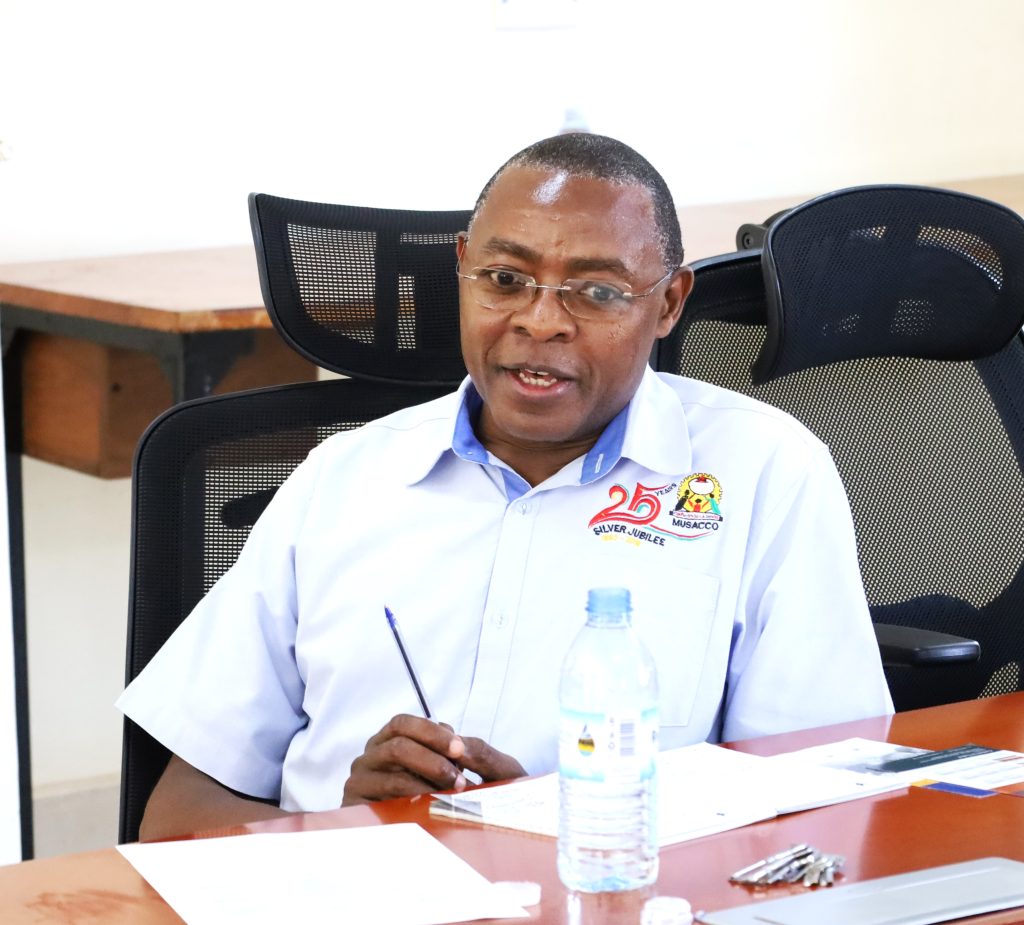
Dr. Luwerekera’s work measures both the quantitative impact—such as numbers of volunteers and beneficiaries—and the qualitative impact captured through memoirs and oral histories. “Many Ugandan leaders today trace part of their formative experiences to interactions with Peace Corps volunteers,” he noted.
He revealed plans to explore the emerging idea of a “Reverse Peace Corps”, where international volunteers could serve in U.S. communities—a concept that reflects the reciprocity embedded in relationality studies.
Itah Patience: Fulbright Scholars and Educational Relationality
Researcher Itah Patience presented on Fulbright scholarships as a channel for educational and cultural relationality between Uganda and the United States.
Her study explores how Ugandan Fulbright scholars influence academic culture and build enduring institutional and personal connections after returning home.
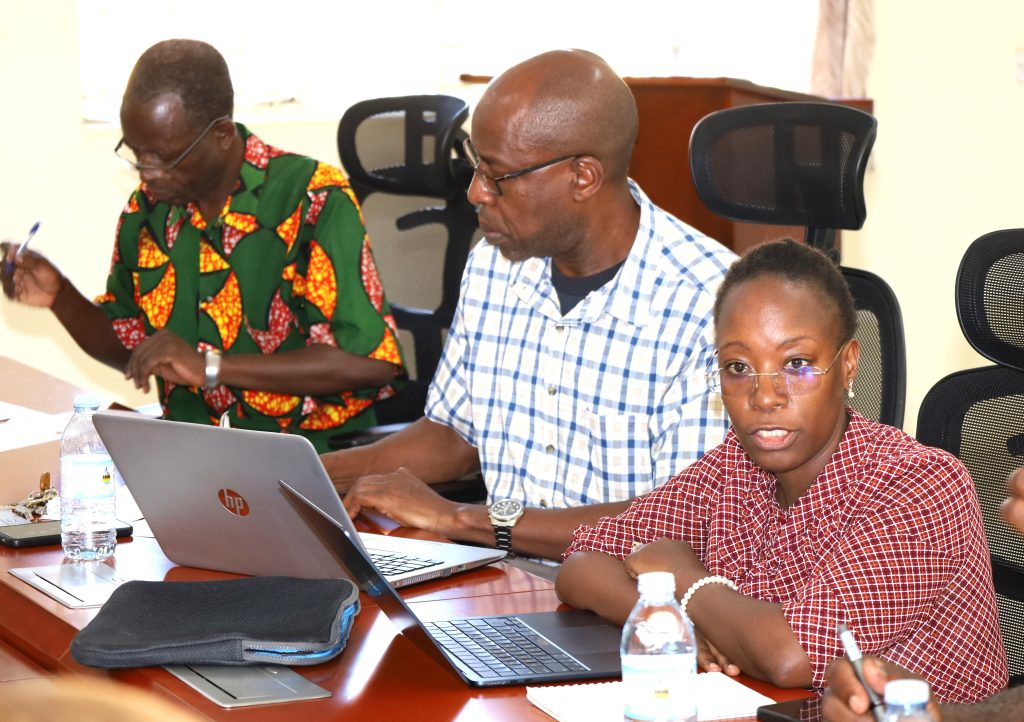
“Relationality in the Fulbright experience operates at multiple levels—individual, institutional, and governmental,” she explained. “Through teaching, collaboration, and shared research, these scholars extend the impact of the Fulbright beyond the classroom to national development and cross-cultural understanding.”
Patience emphasized the importance of academic partnerships as a criterion for Fulbright success. “One applicant told me she failed her first interview because she lacked a U.S. contact, but succeeded later after building professional relationships,” she said. “That shows how relationality is not just a concept but a lived process.”
Dr. George Okiror: U.S.–Uganda Relations Through Constitutionalism and the Rule of Law
Dr. George Okiror’s paper delves into constitutionalism and the rule of law as a foundation for Uganda–U.S. relations.
Adopting a historical approach, he traces parallels from the Magna Carta (1215) to Uganda’s 1962 independence, examining how liberal democratic values have shaped the relationship between the two nations.
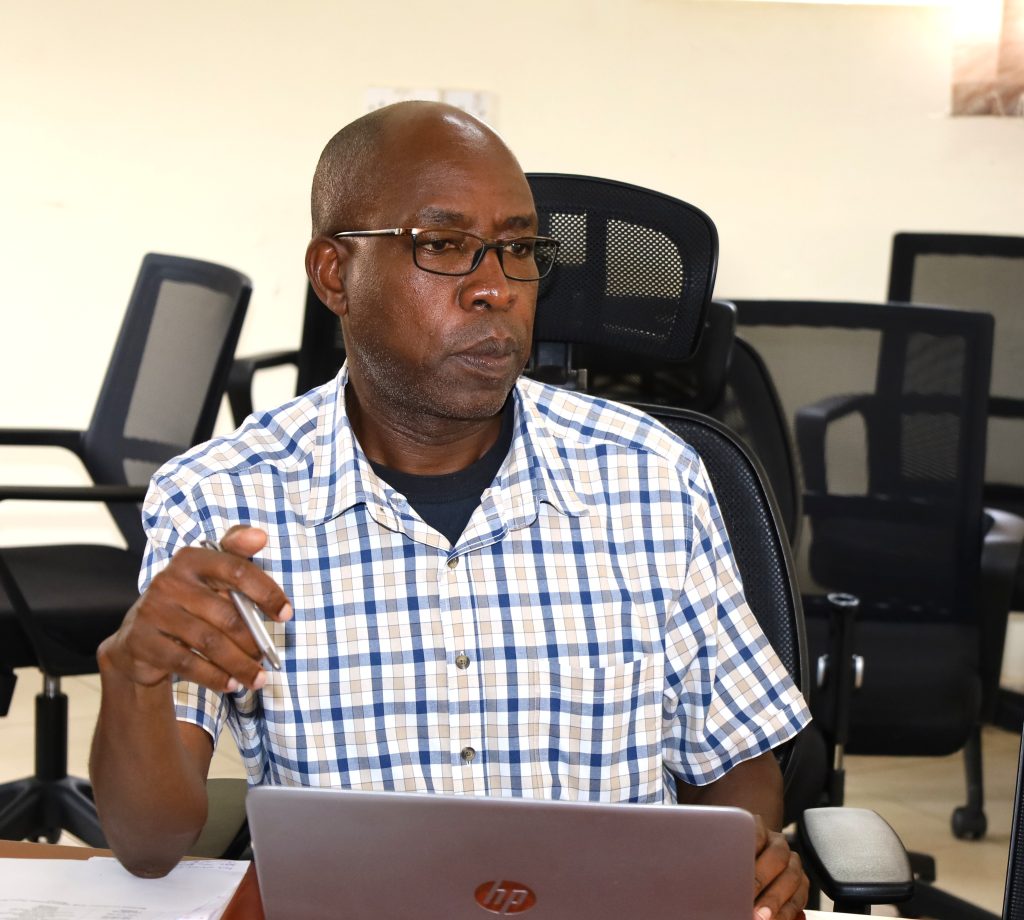
“Uganda–U.S. relations have always been both issue-driven and personality-driven,” Dr. Okiror observed. “From the Cold War era through contemporary debates on democracy, human rights, and governance, each Ugandan and American leader has influenced the tone and trajectory of this relationship.”
He highlighted issues such as Cold War politics, independence movements, democracy promotion, and human rights as pivotal areas of U.S.–Uganda engagement. “I hope to access U.S. congressional archives to deepen this analysis and better understand the dynamics of governance and constitutionalism between our two countries,” he added.
The seminar marked the beginning of a month of active collaboration between Makerere researchers and Professor McLauchlan. The partnership is expected to open new avenues for joint research, publications, and academic exchanges that will enhance the study of U.S.–Uganda relations under the relationality framework.
About the Great Lakes Centre for the Study of the United States
The Makerere Great Lakes Centre for the Study of the United States was officially launched on March 25, 2025, with support from a startup grant from the United States Mission in Uganda. The Centre seeks to promote scholarship on U.S. foreign policy, cultural influence, and international relations, while fostering academic exchange and collaboration between Ugandan and American institutions.
Housed within the Department of Political Science and Public Administration, School of Social Sciences, College of Humanities and Social Sciences, the Centre is led by Prof. Paul Omach as Director, assisted by Prof. Apuuli Kasaija, with Dr. Sylvestre Kaweesi serving as the Principal Investigator (PI) in charge of research.
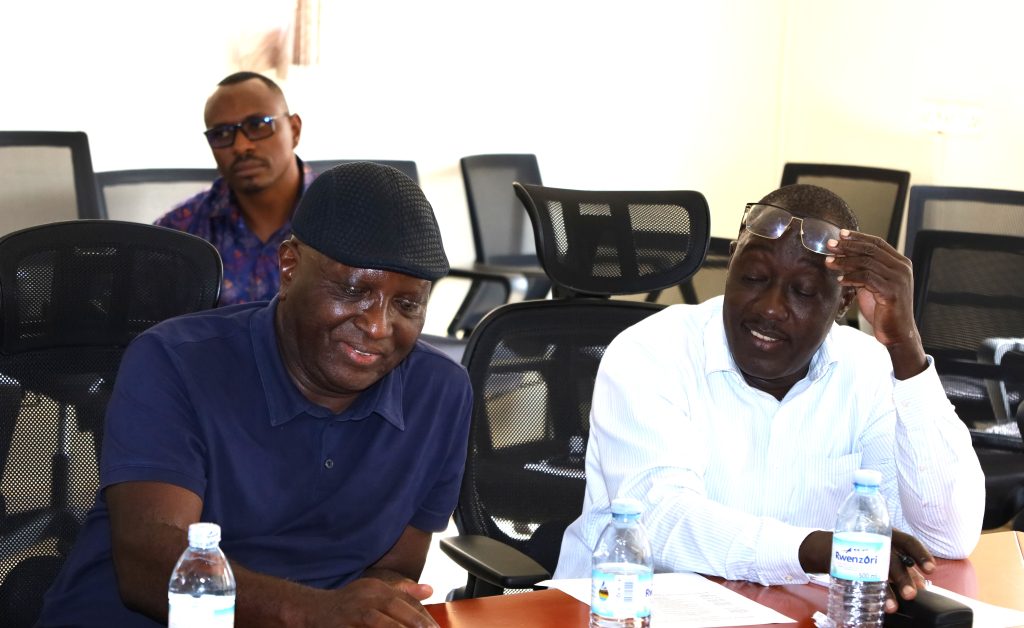
The Centre’s research program revolves around the concept of “Civilizational Relationality.” Under this program, six selected researchers are exploring various themes that interrogate how relations between Uganda and the United States have shaped different domains of Uganda’s national life since 1945.
Dr. Nicholas Sempijja is studying how American jazz has influenced Ugandan popular music. Other ongoing research includes counter-terrorism cooperation (by Dr. Mafumbo Charlotte and Dr. Kibirige Nakaiza), the Peace Corps’ role in local development (by Dr. Bernard Luwererkera), democracy promotion (by Mr. Bwire Lumumba), and constitutionalism and the rule of law (by Dr. George Okiror).

